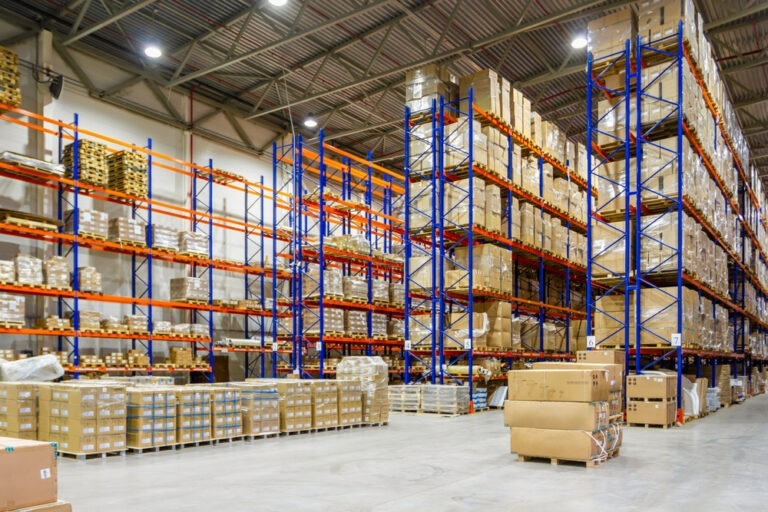Industrial rental spaces serve different purposes, including distribution and manufacturing. Each warehouse has unique responsibilities and specifications, so it’s crucial to understand the area before leasing it. Below is a list of things to consider before leasing warehouse space.
Security
Security is a crucial factor when seeking warehouse space for rent. You must ensure your items are safe, especially if you consider storing valuable items in the warehouse. Establish whether the area around the warehouse is adequately fenced. Consult with your landlord for additional security measures, including CCTV monitoring, electrical fence installation, and daily patrol of guards to deter criminals.
Heating, Ventilation, and Air Conditioning (HVAC)
The majority of warehouses don’t have full-building HVAC. The renter is usually responsible for the HVAC installation if the need arises. You may find that the space you want to lease has an HVAC unit installed by the previous renter. You should avoid taking the burden of a neglected warehouse as you may not beware of whether the previous tenant took good care of it or not. The landlord should make substantial replacements and repairs to the HVAC unit with the help of a professional HVAC expert. Negotiate with your landlord regarding the payments for the maintenance of the existing unit before signing the lease.
Square Footage
Different landlords have varying approaches to measuring the square footage. Ensure you’re aware of how your prospective landlord performs the calculations and parameters taken into account to reach that consensus. Some landlords calculate the storage space area from outside the wall rather than inside. Others will account for the space below the drip lines. A storage space with an adequate ceiling height is ideal for stacking boxes, items, or pallets, ensuring you have enough vertical space for your cargo. If you require minimal space, renting a room with a high ceiling isn’t necessary.
Operating and Maintenance Expenses
Inquire whether operating and maintenance expenses are included in the residential lease. You should know whether the owner handles tax and insurance responsibilities or whether such obligations are yours to deal with. Operating expenses include insurance, maintenance, and taxes. Knowing who’s responsible for such costs allows you to have a solid budget when leasing warehouse space. Note that the landlord is also responsible for the maintenance and repair of parking spaces.
Loading Docks
Loading docks are essential for ensuring adequate and secure access to the warehouse, and most tenants ignore their importance when leasing a storage space. Long and large vehicles require additional repositioning and turning areas, which are lacking in older industrial buildings. The type of dock is crucial as certain products are vulnerable to weather elements. Some of the standard loading docks include:
- Enclosed: These docks have a protective shell and require ample ventilation to minimize the accumulation of unsafe automotive fumes.
- Open: The trucks unload their cargo in an exposed dock area. Open loading docks are usually challenging to handle in bad weather.
- Depressed: These loading docks have inclined driveways that require additional caution to minimize structural damage.
Electrical Capacity
Request to know the storage space power supply to evaluate whether it can meet your electrical requirements. Ensure the warehouse you’re planning to rent has adequate electrical outlets. Ensure you have access to enough power if you have a fleet of electric cars to facilitate the charging process. Hire an electrical engineer or a reputable electrician to evaluate a prospective warehouse property before signing the lease agreement. Such professionals let you know whether the building has adequate power and amperage to prevent the transformer from blowing up.
Parking Space
Parking lots require routine maintenance, and some landlords make their tenants pay for that. Maintenance and repairs are the landlord’s responsibility as they are long-term expenses and part of future property valuation. A parking space serves several purposes, including delivery, pickup, regular use, and overnight parking. Ensure the parking space is adequate, mainly if your company deals with tractor-trailer delivery. Confirm whether vehicles and trucks can park in the parking space overnight if the need arises.
Location
Keep the location in mind before leasing warehouse space. It would help if you surveyed the surrounding region before signing a warehouse contract. Assess whether the warehouse is close to major highways and whether there are service businesses and restaurants in the area to serve your employees. Establishing how your workers would access the new place through accessible parking or public transportation would be best. Understanding the market dynamics of commercial real estate allows you to determine whether the potential rents are appropriate.
The industrial space you wish to lease should have essential amenities and be well-equipped to support your business operations. Ensure you understand the correct use of the warehouse to increase effectiveness, efficiency, and business profits.

